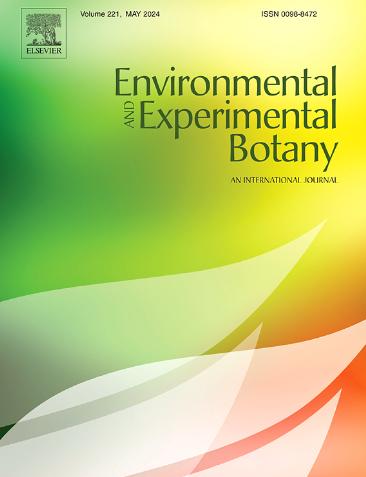主要非生物胁迫对谷物豆类品质参数的影响:影响和改善品质性状的各种策略
IF 4.5
2区 生物学
Q2 ENVIRONMENTAL SCIENCES
引用次数: 0
摘要
干旱、高温、盐碱、水涝、对流层臭氧和重金属等非生物胁迫对作物的生长和产量产生不利影响,给包括谷物豆类在内的作物生产带来重大挑战。随着全球气候变化可能加剧这些压力,豆科植物的产量正变得越来越脆弱。虽然这些胁迫对作物产量的不利影响已得到充分证实,但它们对谷物豆类品质特征的影响却鲜为人知。非生物胁迫会改变谷物的碳水化合物、蛋白质、脂肪/脂类、氨基酸、糖含量、各种微量营养素、食用价值和抗氧化剂,严重损害品质性状。本综述总结了各种非生物胁迫对不同豆科谷物品质参数的负面影响,并探讨了作物育种策略、植物生理学、基因组学和新型分子工具,以减轻这些不利影响。本文章由计算机程序翻译,如有差异,请以英文原文为准。
Major abiotic stresses on quality parameters in grain legumes: Impacts and various strategies for improving quality traits
Abiotic stresses, such as drought, heat, salinity, waterlogging, tropospheric ozone, and heavy metals, adversely affect crop growth and yield, posing significant challenges to crop production, including grain legumes. With global climate change likely to exacerbate these stresses, legume yields are becoming increasingly vulnerable. While the detrimental effects of these stresses on crop yield are well-documented, their impact on quality traits in grain legumes is less recognized. Abiotic stresses can alter grain carbohydrates, proteins, fats/lipids, amino acids, sugar content, various micronutrients, food value, and antioxidants, significantly impairing quality traits. This review summarizes the negative impacts of various abiotic stresses on the quality parameters of different grain legumes and explores crop breeding strategies, plant physiology, genomics, and novel molecular tools to mitigate these adverse effects.
求助全文
通过发布文献求助,成功后即可免费获取论文全文。
去求助
来源期刊

Environmental and Experimental Botany
环境科学-环境科学
CiteScore
9.30
自引率
5.30%
发文量
342
审稿时长
26 days
期刊介绍:
Environmental and Experimental Botany (EEB) publishes research papers on the physical, chemical, biological, molecular mechanisms and processes involved in the responses of plants to their environment.
In addition to research papers, the journal includes review articles. Submission is in agreement with the Editors-in-Chief.
The Journal also publishes special issues which are built by invited guest editors and are related to the main themes of EEB.
The areas covered by the Journal include:
(1) Responses of plants to heavy metals and pollutants
(2) Plant/water interactions (salinity, drought, flooding)
(3) Responses of plants to radiations ranging from UV-B to infrared
(4) Plant/atmosphere relations (ozone, CO2 , temperature)
(5) Global change impacts on plant ecophysiology
(6) Biotic interactions involving environmental factors.
 求助内容:
求助内容: 应助结果提醒方式:
应助结果提醒方式:


